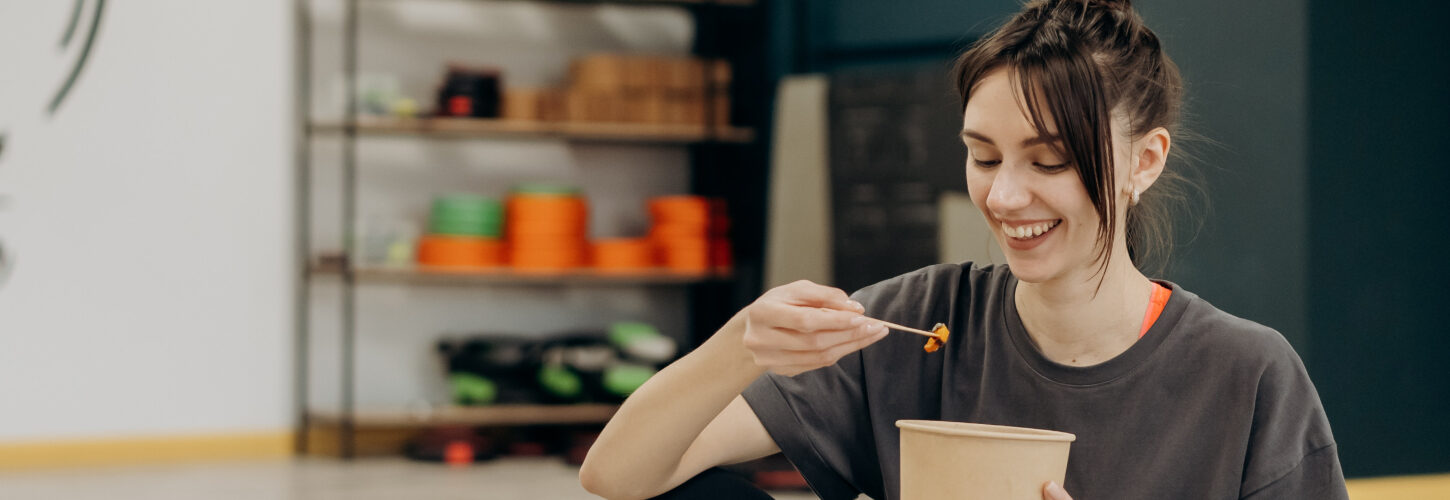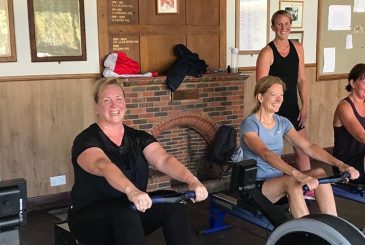Nutrition expert Hatty Bates spotlights six areas to consider when planning your nutritional strategies
1 – Supplements vs food
For rowers at any level, fuelling your body correctly is as fundamental as putting the right fuel in your car. There is no shortcut to eating well and turning to supplements as a quick fix is certainly not the answer.
‘Food first’ should be your approach and a well-organised rower should be able to plan to fuel optimally from food alone. Not only is this likely to be cheaper, but it also decreases the risk of breaching anti-doping rules. If you feel you need a supplement, you can read more about the risks of supplements, how to reduce them, and our Supplements Policy on our Clean Sport web page.
Below are questions to ask yourself when considering supplementation:
- Have you ‘Assessed the Need, Assessed the Risk and Assessed the Consequences’ of taking a supplement?
- Have you consulted a doctor or nutritionist to identify nutritional deficiencies or inadequacies and explored whether these can be addressed through changes to diet and lifestyle?
- Are there other means by which performance gains can be made through the training programme with appropriate timing and composition of food intake?
- Have you carried out research to reduce the risk of the supplement containing a prohibited substance? Is the product’s batch number listed on Informed Sport?
- Be aware there is no guarantee that any supplement including vitamins, minerals and herbal remedies are free from banned or harmful substances even if it is listed on Informed Sport.
2 – Benefits of making home-cooked food
The global pandemic forced many of us to improve our cooking skills and get creative in the kitchen. Restaurants have now re-opened their doors, but sometimes you still can’t beat comforting homemade food. Here are a couple of reasons why:
- Eating homemade food can be much cheaper than eating at restaurants, getting takeaways or picking up a ready-made meal. Planning meals for the week ahead, buying the ingredients in advance and batch cooking are several easy ways to save money whilst enjoying delicious homemade meals.
- You are in control! Cooking at home makes it easier to adapt meals depending on whether you are fuelling for, or recovering from, a training session or are just looking to incorporate more vegetables into your diet to support your overall health.
- Homemade food brings people together. Preparing, cooking, and eating food together is a great way to spend quality time together.
3 – How to find out what works best for you
There’s not a ‘one-size fits all’ rule when it comes to nutrition; everyone is different, but how do you find out what works best for you, especially when it comes to your fuelling and race-day strategies?
Find out how here:
- Experiment with different combinations of food. For example, some rowers may feel more energised after consuming a pre-training meal containing pasta compared to rice. In general, aim for a high-carbohydrate, low-fat meal prior to going out on the water.
- Shift the timing of when you eat. General guidance suggests that pre-training meals and snacks should be consumed between three to four hours and about one hour prior to training, respectively. However, this may not suit everyone.
- Practice makes progress. Keep practising your fuelling strategies. Once you’ve determined what meals and snacks make you feel and train at your best, these can start to formulate part of your pre-race routine.
4 – Nutrition labels
Things to look out for, or be aware of, in the ingredient list of shop-bought nutrition, for example, sugar content?
Nutrition labels can help you make an informed decision about the food you eat:
Ingredients
Ingredients are listed in descending order of weight; the main ingredients are listed first. If the first few ingredients are the likes of butter and cream, then the product is likely to be high in fat.
Low fat
Low fat means a product has ≤3g of fat per 100g. However, this doesn’t necessarily make it a healthier option. Sometimes fat is replaced with sugar; food which is ‘low-fat’ soon becomes high in sugar.
Sugar
A product low in sugar has ≤5g of sugar per 100g. However, sugar is not always listed in the ingredients list. Honey, glucose, and molasses are just some other terms which may be used instead. Whereas some sugars will be naturally occurring, such as those present in fruit, ‘free-sugars’ are added by the manufacturer and could have a negative effect on our health.
5 – Protein and carbs for recovery
The goal of post-exercise nutrition is to replenish energy stores, repair the muscles and support adaptations, as well as replenish fluids lost in sweat. Research suggests that consuming both carbohydrate and protein together, rather than in isolation, may be more beneficial for recovery.
Why? Well, this is because co-ingestion of carbohydrate and protein could enhance the rate of muscle glycogen re-synthesis.
Where possible, it is best to take a food-first approach to your recovery. Not only does this reduce the risk breaching anti-doping rules, but recovery meals and snacks are likely to be more nutritious than supplements. For example, a homemade fruit smoothie contains more vitamins and minerals compared to a whey protein; having a smoothie would not only help repair the muscles, but also help protect the immune system. Examples of well-balanced recovery meals include chicken fajitas, three bean chilli, and scrambled eggs on toast.
6 – Eating before bed leads to weight gain
You may have heard the phrase ‘eat breakfast like a king, lunch like a prince, and dinner as a pauper’. However, what causes weight gain is simply consuming more calories than you are expending on a daily basis – regardless of what time you eat.
That said, the type of food you eat prior to bed could be important. Following a busy day of work or training, late-night snacks are often consumed in front of the television and tend to be calorie-dense with little nutrients.
Before you know it, it is easy to have consumed a whole packet of chocolate biscuits, resulting in an overall calorie surplus which could ultimately lead to weight gain. Alternatively, having a high-protein snack prior to bed may be beneficial. For example, having some Greek yoghurt or a glass of milk 30 minutes prior to sleep may be beneficial for muscle adaptations and recovery.
–
–
–
–
–
–
–
–
–
–
–
–
–
–










